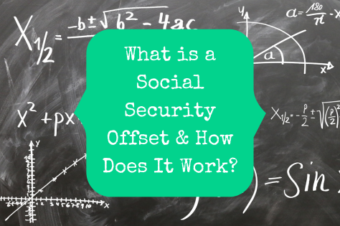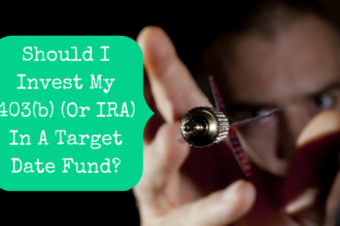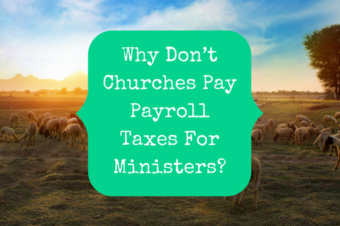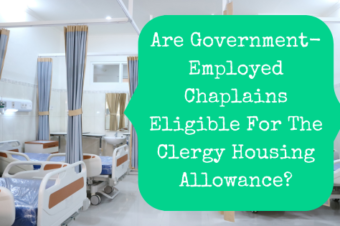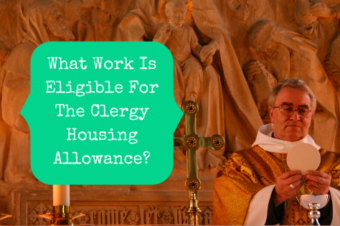Pastors who save into their church’s retirement plan are eligible to withdraw some of that money as a tax-free housing allowance in retirement. It’s a great benefit to have. Unfortunately, a lot of church retirement plans have investments with higher fees than are available in IRAs. Because of this, I have been asked multiple times if it is worth it. Does the ability to claim a housing allowance outweigh the cost of the higher fees?
As with everything in financial planning, the answer is that it depends. It depends on a lot of things, the primary one being your tax situation. Since the question involves calculations and doesn’t have an easy answer, I asked one of my amazing colleagues, Cal Treichler, to help me out. In addition to being a Certified Financial Planner, Certified Student Loan Planner, and PK, he’s also a spreadsheet whiz. In his free time, he created this spreadsheet that allows you to compare the housing allowance benefit with the benefit of lower investment fees:
Housing Allowance vs. Investment Fees Comparison
Let me show you how it works. Let’s say you have $500,000 in your 403(b) and you’re trying to decide if you should keep it where it is in a target date retirement fund with 0.8% fees or roll it into an IRA and invest in a Vanguard target date retirement fund with 0.08% fees. Your combined federal and state income tax rate is 22% and you have $20,000 of eligible annual housing expenses. This is what it looks like:

As you can see, between the fees and the housing allowance tax benefit, with the 403(b) you end up with a $400 net benefit while with the IRA you end up with a $400 net cost. The green box is the better deal for you. Isn’t that cool how he even color-coded the results?
Now let’s look at how things change if your 403(b) investment fee is 1%.

Here, even with the benefit of the housing allowance, you’ll still end up $200 ahead by having your money in the IRA with the lower fees. Go ahead and download the spreadsheet and play with the numbers. The higher your housing allowance and tax rate, the more advantageous the 403(b) while the higher the 403(b) fees, the more advantageous the IRA.
The Effects of Social Security Taxes
A client recently asked me that same question about 403(b) vs. IRA. However, he wasn’t referring to money he had already built up in his 403(b) but new retirement contributions. In his case, there is another factor to consider. This pastor did not opt out of Social Security, so he pays about 15% of his income in self-employment taxes.
Self-employment taxes is just another name for Social Security and Medicare taxes. Everyone has to pay them except for pastors who have opted out. In most cases, any money that you save for retirement has already had Social Security and Medicare taxes taken out. That is true for anything you put into IRAs and also most employer-sponsored retirement plans, even pre-tax accounts.
The one exception is pastors. Because of the way pastors pay Social Security and Medicare taxes as if they are self-employed, contributions to employer-sponsored plans happen before those taxes are calculated. This is unique to pastors and the only way they can avoid paying those taxes without opting out.
So, for a pastor who is participating in Social Security, putting $1,000 into an IRA and $1,000 into a church 403(b) is not a fair comparison. While you can put $1,000 into your 403(b), after paying the 15% taxes you only have $850 left to put into the IRA. How does that affect the decision?
Here is a chart that compares your options. The initial investment is $1,000 less any taxes that you have to pay before the money can go into the account. SECA taxes are 15% and for income taxes, I’m assuming 12% federal and 6% state. For 403(b) investment fees, I chose 0.8%, which is the fee for the PCA’s target date retirement fund since I’ve had a couple of clients invested in that recently. The IRA fees are Vanguard’s fee for their version of the same target date retirement fund.
| Account | Initial Investment | Calculation | Investment Fee | Balance After 20 Years with 7% Growth | Taxation of Withdrawals |
| Church 403(b) | $1,000 | No taxes paid | 0.80% | $3,455 | Tax-free for housing allowance, otherwise subject to income tax |
| Traditional IRA | $850 | 15% SECA taxes paid | 0.08% | $3,393 | Subject to income tax |
| Roth IRA | $670 | 15% SECA + 12% Federal + 6% State income taxes | 0.08% | $2,675 | Tax-free |
As you can see, in this particular situation it is still more advantageous to invest in the 403(b) even though the investment fees are 10 times higher. That won’t be the case every time, so you’ll have to calculate it with your own unique numbers to get your own answer.
I hope this spreadsheet is helpful for you and also the tip about avoiding SECA taxes!


